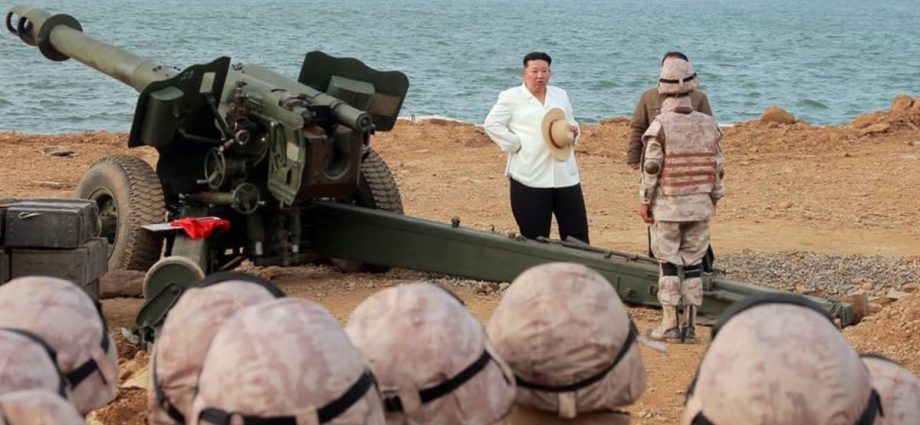
SEOUL: North Korean leader Kim Jong Un has attended the opening ceremony of a new massive greenhouse farm built on a former air base where the country had test-fired missiles until last year, state media said on Tuesday (Oct 11).
The launch on Monday of the Ryonpho Greenhouse Farm, located in the eastern county of Hamju, was to mark the anniversary of the founding of the ruling Workers’ Party, a major holiday in North Korea.
Kim attended the event after guiding nuclear tactical exercises targeting South Korea over the past two weeks, which state media said were designed to counter recent joint naval drills by South Korean and US forces involving an aircraft carrier.
The North’s ruling party unveiled the project to transform the Ryonpho air base into a “highly automated farm” and a model for rural civilisation, calling it a “top priority task” to help achieve its goal of improving people’s lives set at its key policy meeting last December.
The isolated country had used the area for several launches of a short-range ballistic missiles, including the KN-25s in November 2019 and the suspected KN-23s in March 2021.
The farm has more than 850 blocks of modern greenhouses covering 280 hectares, to be harmonised with some 1,000 houses, schools and cultural and service facilities, the official KCNA news agency said.
Kim has spearheaded the farm initiative to boost vegetable supplies and praised soldiers and workers for completing the construction in just a few months, KCNA said.
The party plans to “more dynamically and confidently push forward the overall rural development of the country with the Ryonpho Greenhouse Farm as a model”, Kim was quoted as saying at the ceremony.
He called for building more large farms, increasing the variety of vegetables to be supplied and ensuring scientific, industrialised production and management at those farms.
North Korea first introduced the similar but slightly smaller Jungphyong Greenhouse Farm in the northeast county of Kyongsong in late 2019 as it pushed for self-reliance amid tightening international sanctions over its nuclear and missile programmes.

